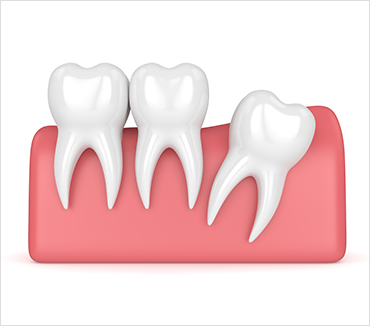Post-Operative Care
As with any other tooth extraction or dental surgical procedure, the gum may be tender and sore. You will leave our office with aftercare instructions to expedite the healing process. You may receive pain medication and anti-inflammatory medications for swelling and any postoperative pain.
Healing time – each person is different, and there are a number of factors to consider, but typically, 2-4 days of healing is needed. Your dentist will explain the healing time based on your specific situation.
Stitches – if you had oral surgery, you will generally have some dissolvable sutures. This type of stitch will dissolve on its own in a couple of days. You may have a bit of bleeding after the surgery. This is normal.
Hydrate – for the next 24-72 hours, you will need to take it easy and drink plenty of fluids. Avoid hot drinks for a few days after surgery. Do not sip through a straw as the sucking motion could dislodge the blood clot (dry socket) in the tooth socket and cause complications.
Swelling – Swelling in the jaw or cheek is normal and should subside within a few days. Applying an ice pack to the cheek or jaw can help swelling. You may have a bit of bleeding after the surgery. This is normal.
Eating – eat soft foods for a few days and avoid sharp or hard foods like nuts or chips.
Tobacco Use – avoid smoking or using tobacco products as it can cause a dry socket. A dry socket is an infection from the blood clot being dislodged, exposing the bone and nerves.
Mouth Rinse – use warm salt-water multiple times a day and rinse your mouth to help eliminate bacteria. Avoid brushing your teeth for at least 24 hours.


